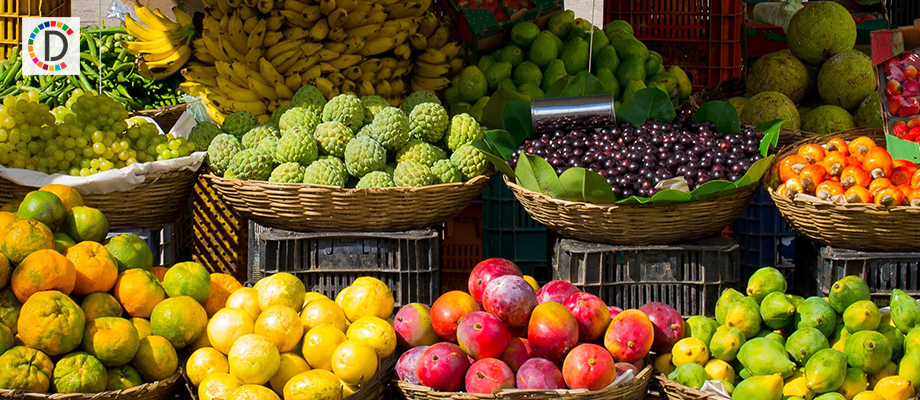J&K's fruit industry to get a boost with high-density plantation

- Country:
- India
Jammu and Kashmir is all set to revolutionize its fruit industry with the introduction of high-density plantation (HDP) and production of quality planting material, a move that will help increase farmers' income, an official said.
By producing quality planting material of elite varieties for different fruit crops, the industry will be able to harness its full potential and contribute significantly to the economy of Jammu and Kashmir, Additional Chief Secretary, Agricultural production Department, Atal Dulloo said.
The project aims to enhance the production capacity of planting material to 111 lakh in the first five years, develop 390 hectares of nurseries in public and private sectors, rejuvenate 2,000 hectares of orchard areas, and produce planting material to cover 5,500 hectares under HDP of 12 fruit crops.
HDP alone has the potential to increase productivity and income in apple, walnut, and other fruit crops by more than twice the current levels, he noted.
''The goal is to make Jammu and Kashmir a self-reliant bio-economy by harnessing the economic potential of its diversified fruit crops,'' he told PTI.
Dulloo highlighted that the current lack of quality planting material in the UT limits the potential of the fruit industry and costs the region approximately Rs 500 crore in imports, which also brings in new pests and diseases.
"The mission of the project is to domestically produce quality planting material, reduce imports, prioritize high-density plantation of fruit crops, transform old orchards into more productive orcharding systems, and diversify the JK fruit industry to capture the national and international market.'' The department of horticulture in collaboration with the Sher-e-Kashmir University of Agricultural Sciences and Technology (SKUAST) and Indian Council of Agricultural Research-Central Institute of Temperate Horticulture (ICAR-CITH), have come together to provide technological intervention for this new project.
The project aims to strengthen plant testing and quality control labs, tissue culture labs, virus indexing labs, and build capacity by training 5,000 farmers and 150 technical manpower from SKUAST and the department of horticulture.
The project shall create 200 new enterprises in the form of HDP nurseries and provide potential jobs for 25,000 individuals, he said.
Dulloo said production of designer plants for promotion of HDP and rejuvenation of orchards is one among the 29 projects which were approved by the Jammu and Kashmir administration after being recommended by the UT-level apex committee for holistic development of agriculture and allied sectors of J&K.
''The project will also generate planting material for crops such as apple, pear, olive, walnut, mango, citrus, guava, litchi, stone fruits, kiwi fruit, almond and dragon fruit,'' he said.
The expected economic contribution of the fruit industry to the overall economy of Jammu and Kashmir in the next 25 years is Rs 60,000 crore per year, he said.
By providing a complete technological intervention for planting material production, the project will generate inputs for apple, pear, olive, walnut, mango, citrus, guava, litchi, stone fruits, kiwi fruit, almond, and dragon fruit plantations.
The promotion of these fruit crops on a large scale will not only increase productivity and returns for farmers, but also raise the income of nursery growers by around Rs 1 lakh per kanal per year, he said.
This project is a game changer for the horticulture industry in Jammu and Kashmir and will help improve lives of farmers and increase the overall income of the region.
(This story has not been edited by Devdiscourse staff and is auto-generated from a syndicated feed.)
ALSO READ
Gagan Shakti-24: IAF aircraft operated from Emergency Landing Facility in Kashmir valley
PDP, NC to contest against each other in Kashmir; Mehbooba, Omar trade blame
Special awareness camps held for Kashmiri migrant voters in J-K
20 Climate Entrepreneurs from Kashmir to Kanyakumari Come Together to Solve Local Sustainability Challenges
PDP, NC to contest against each other in Kashmir; Mehbooba, Omar trade blame










